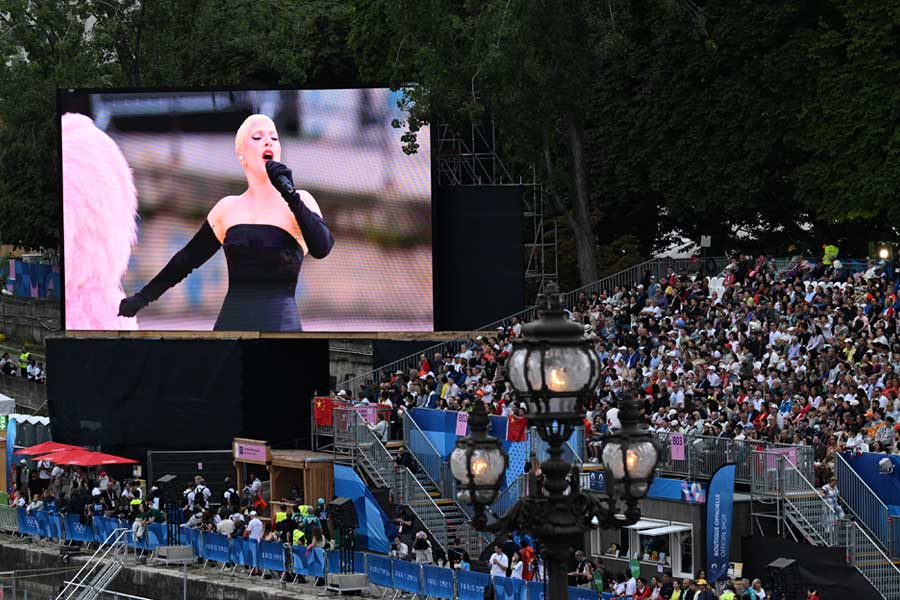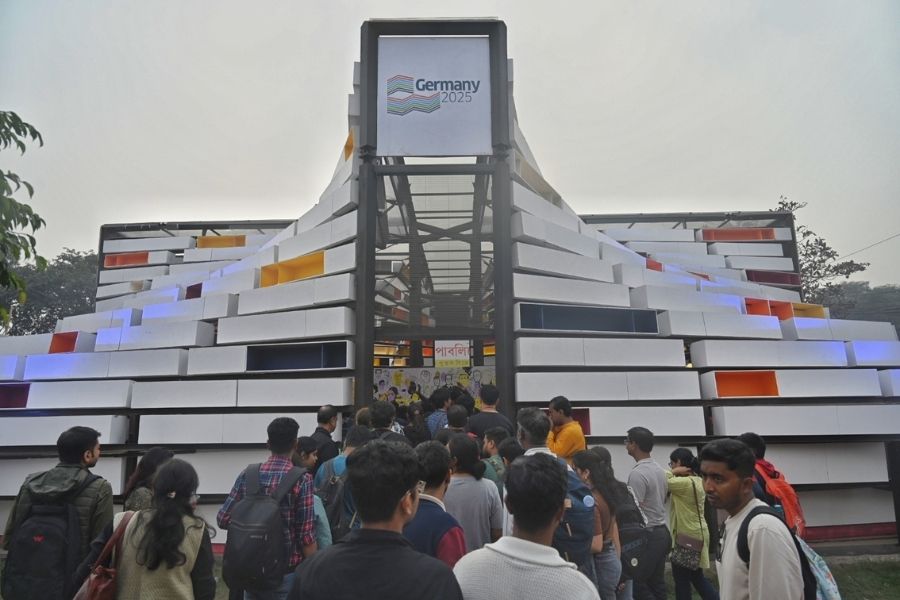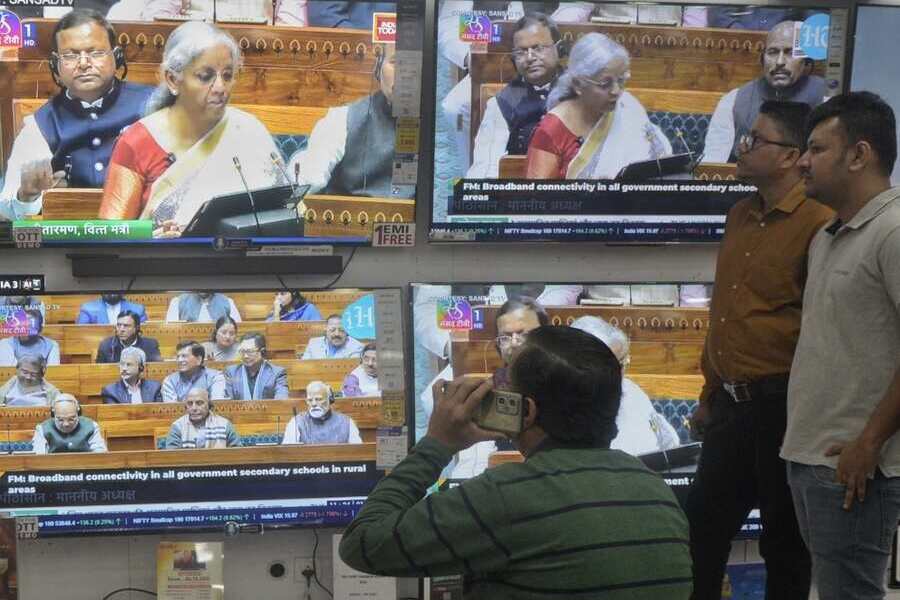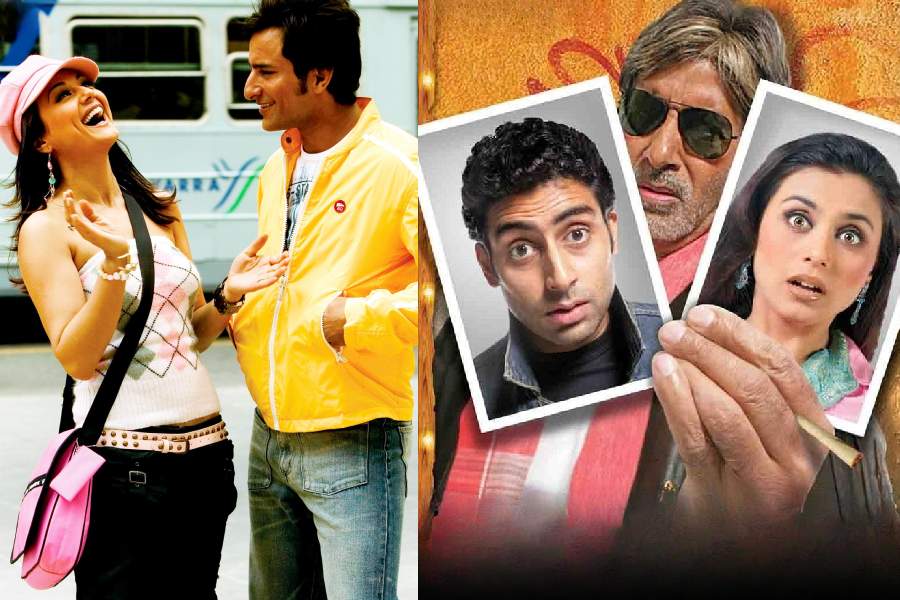 Sunday, 02 February 2025
Sunday, 02 February 2025
 Sunday, 02 February 2025
Sunday, 02 February 2025
In a blaze of French style blending history and artistic audacity, the Paris Olympic Games opened beneath plumes of blue, white and red smoke, as thousands of athletes defied a downpour to sail through the city’s heart, down the Seine toward the Eiffel Tower.
Lady Gaga, emerging from behind pink puffballs in a black bustier, performed in French. Cabaret artists can-canned on the riverbanks. Aya Nakamura, a French Malian singer whose presence was contested by the nationalist right, emerged from the august Académie Française, bastion of the French language, to offer her slang-spiced lyrics as she gyrated and stroked herself to the music of an impassive Republican Guard marching band.
A new and diverse France confronted an old and traditional France. At a moment of sharp political confrontation that has left the country deadlocked, the ceremony was an invitation to think again about the meaning of the nation and the possibility of understanding. The Republican Guard relented at the last and tried some modest dance moves in their military uniforms to Nakamura’s massive hit “Djadja.”

A video screen displays Lady Gaga performing during the opening ceremony of the 2024 Paris Summer Olympics along the Seine in Paris, on Friday, July 26, 2024. The Paris Games began with a new look and sparkled with Celine Dion, but the show suffered from bloat similar to TV’s other spectacles, writes the New York Times critic Mike Hale.
(James Hill/The New York Times)But diversity in France, and the Games themselves, remain contested subjects.
Coordinated arson attacks early Friday disrupted three high-speed train lines, causing chaos on a day when all the world’s eyes were on Paris. There was no immediate claim of responsibility for the attacks, but they were clearly planned to increase anxiety in the capital, where tens of thousands of police officers and the military patrolled the streets.
Night fell gradually as the ceremony proceeded, and the five giant Olympic rings — in blue, yellow, black, green and red — that now adorn the Eiffel Tower spread their glow over the Seine toward Trocadéro. The tower itself was alive with wisps of light coiling upward and spokes of light shooting outward.
French athletes including Tony Parker, a basketball player, and Amélie Mauresmo, a tennis star, carried the Olympic torch through the Louvre courtyard into the Tuileries Garden. The group of runners grew to include three French athletes who will compete in the Paralympic Games in September. This inclusive gesture reflected a core theme of the ceremony.
The flame was eventually handed off to Teddy Riner, a judo champion, and Marie-José Pérec, a three-time track gold medalist, who held separate torches and together lit the Olympic cauldron. A hot-air balloon rose behind them in a spectacular finale that culminated with Celine Dion belting out Edith Piaf’s “L’Hymne à L’Amour” or “Hymn to Love,” on the Eiffel Tower.
“This is France!” President Emmanuel Macron declared on social platform X. Later he added: “People will talk about this 100 years from now.”
Conceived by theater director Thomas Jolly and built around scenes from French history, including the 1789 Revolution and the beheading of Marie Antoinette, the ceremony was at once a hymn to the beauty of Paris, the first break with the practice of Olympic openings in stadiums, and a statement that France’s revolutionary slogan — “liberty, equality, fraternity” — still offers a foundation for an ever more unequal world.
“There are more people who want to live together, and more people receptive to the idea of otherness, than there are people who reject that,” Jolly said this week in an interview with The New York Times. “It’s just that you hear them less.”
In the immediate aftermath of the arson attacks, uncertainty hung in the air. But by the time the ceremony began, the emotional impact of the attacks had dwindled.
Huge crowds converged on the river, occupying newly constructed stands, and from the windows of apartments along the Seine people cheered and waved as the flotilla passed. Even drenched, Paris was alive. Some countries — including Gabon, Bahrain and Bhutan — had their own tiny boats, quaintly interspersed between the delegations on larger vessels.
At Trocadéro, opposite the Eiffel Tower, where the Universal Declaration of Human Rights was signed in 1948, Macron awaited the athletes before a crowd that donned ponchos and huddled under umbrellas in the unrelenting rain. He told French newspaper Le Parisien this week that he had felt some “vertigo” as the Olympics, a decade in the making, were set to begin.
In fact, it is France that has experienced vertigo over the past seven weeks. It has reeled from Macron’s largely unexplained decision to dissolve the National Assembly and call parliamentary elections. The vote proved inconclusive and has left the country drifting under a caretaker government.
How the political impasse will be resolved is still unclear, but that is a problem for another day. For Macron, an embattled president, the ceremony, which had many naysayers who believed it was too risky, was a triumphant moment.
Tony Estanguet, the head of the Paris Olympics Committee, addressed the crowd and attempted to convince them that “when you love the Games, you do not let a few raindrops bother you.”
Estanguet said that “the most beautiful treasures of our national heritage will be your playground,” alluding to sites like the Grand Palais, the Eiffel Tower and the Place de la Concorde, where various Olympic events will be held until the Games end Aug. 11. The prevailing idea has been to make a stadium of the city, rather than build new stadiums that become redundant at great financial and ecological cost.
“Even if France is never in agreement on anything, in the moments that count, we know how to come together,” Estanguet added.
But even before the ceremony was over, the anti-immigrant right had started to raise its voice in protest. Marion Maréchal, a European lawmaker and the niece of Marine Le Pen, the far right leader, decried the “drag queens, the humiliation of the Republican Guard obliged to dance to Aya Nakamura, and the general ugliness of the costumes and choreography.”
Macron had a powerful retort. He has often been called the “at the same time” president because of his tendency to argue one thing and later its opposite. Over images of the military band dancing to Nakamura, he said simply on X: “At the same time.”
For a moment at least, he had brought two worlds together.
The New York Times News Service







